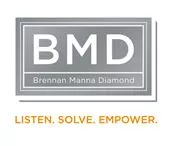- in United States
Latest update by cannabis banking thought leader, Scottsdale/Phoenix Office Managing Partner, Stephen A. Lenn
As we prepare for the plenary session of the informal institutional cannabis lenders community that was announced in my most recent blog, Explosive Growth in Pot of Gold Opportunity for Bank (and Other) Cannabis Lenders Driving Erosion of the Barriers, I am pleased to advise that participants now include 5 of the best-known dedicated loan funds; a select group of commercial banks ranging in size from single state community banks to mid-size regionals making cannabis loans into the mid-8 figures; and, a syndicator of credit union cannabis loans.
In October, I will be offering Closing Remarks at a high-net-worth, family office investment summit in New York, which will include an outreach to that sector of the institutional lending constituency.
We have, however, received a curious - although not totally unexpected - response from several early mover community banks that have declined to participate, offering as a reason: "We had to learn to do this the hard way, why should we share what we've learned?" For reasons set forth following the update, I believe this perspective is misguided and, ultimately, far more likely to result in the loss rather than the retention of the best cannabis customers their pioneering efforts produced.
Plenary Session Update:
In response to questions from participants and potential participants regarding what participation in the community will offer and entail, the answer is that the decision will properly reside with the participants who will decide what they want and are willing to do.
Accordingly, at the plenary session, participants will:
- consider, and perhaps modify and/or expand on the initial mission statement articulated in my prior blog—the creation of (i) a roster of potential loan participants, and (ii) a forum for staying current on evolving best practices.
- establish a path forward that they determine best serves their needs.
To the extent potential participants want a voice in this critical first phase, now is the time to contact us with indications of interest. salenn@bmdllc.com.
Why the articulated rationale of the holdouts is, at the same time, both futile and almost certainly counterproductive:
First, the concern about sharing anything proprietary is easily addressed. Except for making known to the other participants their willingness to lend to the cannabis industry, and on what terms and under what circumstances they will do so (e.g., geographic constraints, financial requirements for borrowers), participants will not have to disclose to the group proprietary protocols unless they choose to do so.
Second, futility. In the face of the accelerating increase in the number and size of banks lending to the cannabis industry, it seems both misguided and unrealistic to predicate a strategic decision not to participate in this community on the assumption that other banks can't or won't be able to enter the business without the help of those early movers. What's happening in the marketplace substantiates the belief that I've been expressing in my blogs and articles: irrespective of any enabling federal legislation, more and larger banks are and will continue moving into the market so long as this remains an attractive business opportunity.
Third, and perhaps most importantly, it is my belief that the market disconnect reflected by this position is, as a practical market matter, contrary to both those banks' near and long-term interests. The kind of creditworthy cannabis borrowers banks want will almost certainly be those that are successful and growing, whose credit needs are consequently increasing, and we've already been approached by banks across the size spectrum of those lending to cannabis businesses reaching out for help in identifying potential participants. Deposits are tied to loans, and community banks, with regulatory or house lending limits of $10 million +/-, that don't have ready access to a stable of loan participants risk losing—check that, will lose business - if they become unable to satisfy their good cannabis customers' ever-growing borrowing needs.
Bottom Line:
- Whether or not any particular early mover participates in the community will have little, if any, impact on the competitive environment and those early mover banks not participating in the community will do nothing to deter or slow down competition.
- Participation can enhance the ability to retain the good business a bank already has and attract desirable new business in the space.
Accordingly, for a variety of reasons, participation offers lots of upside potential and little, if any, downside:
- In the near term, banks that don't participate lose access to potential business referrals from other participants. They will also lose the opportunity to learn and benefit from the collective experiences and perspectives of others. Cannabis banking, and cannabis lending, in particular, is a rapidly evolving market that remains fraught in ways that are endemic to any rapidly emerging industry, and which are exacerbated by the federal/state law issues the cannabis industry faces. Those electing not to participate in the community will miss out on opportunities to improve their cannabis banking operations and, potentially - if not almost certainly - be exposed to risks that might otherwise be avoided.
- More importantly, in the longer term, the community banks that elect not to participate may well be cutting off their noses to spite their faces, failing to maintain their ability to meet the growing needs of the best customers.
The content of this article is intended to provide a general guide to the subject matter. Specialist advice should be sought about your specific circumstances.


